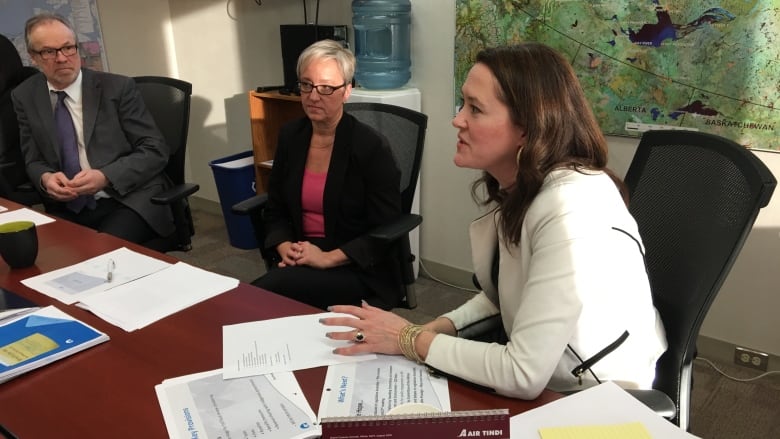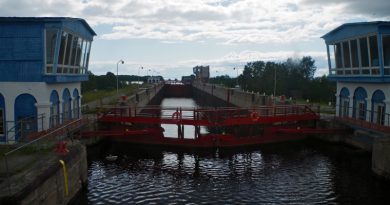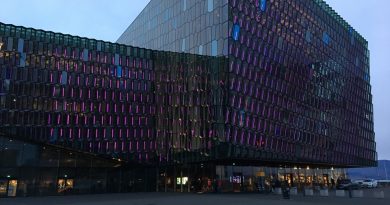Northern Canadian territory tables mining act requiring benefit agreements with Indigenous govs

The Northwest Territories government, in Canada’s central Arctic, says more accountability on negotiations between industry and Indigenous governments is a hallmark of its long-awaited Mineral Resources Act, which was tabled in the legislature Monday.
If passed, companies will be required to sign a benefit agreement with affected Indigenous groups before companies can proceed with any major mining projects.
The act replaces mirrored federal legislation the territorial government has been using since it started managing its own land and resources after devolution in 2014.
Indigenous bargaining power will have limits
Guidelines as to what benefits are considered reasonable will be written into the act’s regulations. And if Indigenous governments and mining companies aren’t able to come to an agreement, the matter would be sent to “an independent decision maker,” said deputy minister Tom Jensen.
“Both the proponent and the Indigenous government have rights,” he said.
It’s already common practice for mining companies to negotiate impact and benefit agreements with Indigenous governments before projects go ahead, but government officials say putting a process in law will give companies more clarity.
Promise of devolution ‘has yet to come true’: MLA
Missing from the act are changes to how much resource revenue the Northwest Territories government collects from future mining projects.
The government is first working on a full, separate review of the resource-revenue regime, said Industry, Tourism and Investment Minister Wally Schumann in the legislature on Thursday.
The document says the review will take several years, and include other revenue the government gets from mines, not just royalties.
Speaking with CBC on Sunday, Frame Lake MLA Kevin O’Reilly slammed this approach.
“The most important thing we should have done was to review the royalty regime,” he said. “The promise of devolution — we are going to benefit more from resource development — that has yet to come true.”
The bill would also allow the territorial government to choose what information should be disclosed about royalties.
The current regulations only allow the territorial government to disclose the amount of royalties it receives from the entire sector, not from specific projects or companies, according to spokesperson Mike Westwick. That’s despite the fact that 2015 federal legislation requires companies to annually report royalties, taxes, fees and other payments.
Other aspects of the proposed act
The act will include provisions for online map staking, which is expected to make it easier and safer to stake a claim in remote areas with often-hostile climates, said Pamela Strand, Assistant Deputy Minister of Mineral and Petroleum Resources.
In consultations, the Northwest Territories and Nunavut Chamber of Mines had pushed for online map staking, while environmental group MiningWatch had called for the territory to eliminate claim staking entirely. It instead suggested a bidding approach, which it said could give the government more control and drive up revenue.
The minister will also have increased power to encourage mining development in some areas, and prevent it in others. There will be the option to designate exploration zones with less strict requirements on prospectors, as well as an option to create temporarily restricted areas to prevent exploring culturally or ecologically sensitive areas.
MLAs will be debating the Mineral Resources Act during this session of legislature.
Related stories from around the North:
Canada: MLAs in Canada’s Northwest Territories criticize new mine benefits agreement, CBC News
Finland: Struggling to hire, Finnish firms send mixed economic signals, Yle News
Norway: Iron mines in Arctic Norway could soon re-open, The Independent Barents Observer
Russia: Russian miners dig deeper into vast Kola nickel reserve, The Independent Barents Observer
Sweden: Iron mine in northern Sweden to restart production, The Independent Barents Observer
United States: Drilling opponents in U.S. House launch bill to close ANWR, Alaska Public Media



